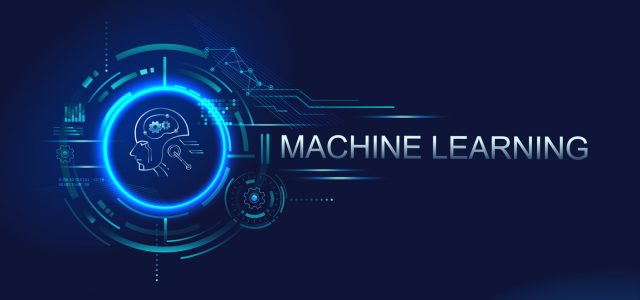AI and machine learning research is progressing at breakneck speed. This is producing innovative solutions and methodologies that will not only drive new technology today but lay the foundations for the future. So in this blog let’s explore some of the most interesting machine learning research papers that were published last month. Collectively, these papers showcase advances across various domains, from handling noisy data to enhancing anomaly detection and quantum computing efficiency.
In-person conference | May 13th-15th, 2025 | Boston, MA
Join us on May 13th-15th, 2025, for 3 days of immersive learning and networking with AI experts.
🔹 World-class AI experts
🔹 Cutting-edge workshops
🔹 Hands-on Training
🔹 Strategic Insights
🔹 Thought Leadership
🔹 And much more!
Gradient Guided Hypotheses: Tackling Scarce and Noisy Data
Researchers Paulo Neves, Joerg K. Wegner, and Philippe Schwaller have introduced an architecture-agnostic algorithm named Gradient Guided Hypotheses (GGH). This algorithm addresses challenges associated with noisy and incomplete data, which often constrain the performance of machine learning models. GGH leverages gradients from hypotheses to detect and handle distinct patterns in data, thus treating noise and missing data as related issues. Experimental validation using open-source datasets demonstrated GGH’s superiority over state-of-the-art imputation methods, especially in high scarcity regimes, where GGH was the only viable solution. This research underscores the potential of GGH in improving data quality and model performance in diverse applications.
Transformer and Hybrid Models for Machine-Generated Text Detection
In the paper by Teodor-George Marchitan, Claudiu Creanga, and Liviu P. Dinu, the UniBuc-NLP team addresses the challenge of detecting machine-generated text across multiple domains and languages. Their transformer-based model secured second place out of 77 teams in the SemEval 2024 Task 8, achieving an impressive accuracy of 86.95%. While their model excelled in one subtask, overfitting issues were noted in others, suggesting potential improvements through better fine-tuning and sequence length adjustments. This machine learning research highlights the robustness and adaptability of transformer architectures for text detection tasks.
Deepak Narayan Gadde, Sebastian Simon, Djones Lettnin, and Thomas Ziller explore methods to improve verification throughput in SoC designs, a critical bottleneck in the industry. Their study compares traditional ranking methods with Cadence’s Xcelium ML technology, which uses machine learning to optimize test patterns. Both methods showed comparable efficiency improvements, but Xcelium ML also produced significant coverage gains by generating novel random scenarios. This machine learning research provides valuable insights into leveraging ML for enhancing design verification processes.
Xiaoxia Zhang, Xiuyuan Qi, and Zixin Teng’s study focuses on sentiment analysis of Reddit comments using the GoEmotions dataset. They evaluate a variety of models, including traditional classifiers and transformer-based models like BERT, RoBERTa, and GPT. Their findings reveal that RoBERTa outperforms other models in fine-grained sentiment classification tasks, demonstrating its potential for advanced sentiment analysis. This comprehensive evaluation highlights the importance of model diversity and nuanced performance metrics in sentiment analysis research.
Level Up Your AI Expertise! Subscribe Now:
![]()
![]()
Applied Machine Learning to Anomaly Detection in Enterprise Purchase Processes
Herreros-Martínez and colleagues present a methodology for anomaly detection in enterprise purchase processes. They employ unsupervised machine learning techniques, including z-Score, DBSCAN, k-Means, and Isolation Forest, to identify suspicious activities in large datasets. Their approach combines exploratory data analysis with ensemble prioritization and explicability methods like LIME and SHAP, enhancing the effectiveness of anomaly detection in digitalized processes.
PAODING: Data-Free Pruning for Neural Networks
Mark Huasong Meng and his team introduce PAODING, a toolkit for debloating pre-trained neural networks without requiring data. PAODING iteratively prunes neurons to minimize the impact on model output, significantly reducing model size while preserving accuracy and robustness. This toolkit offers a versatile solution for optimizing neural networks across various datasets and applications.
Leveraging Quantum Machine Learning Generalization to Significantly Speed-up Quantum Compilation
Alon Kukliansky and colleagues propose QFactor-Sample, a quantum machine learning technique to speed up quantum compilation. By replacing complex matrix operations with simpler circuit simulations, they achieve a remarkable speedup factor of 69 for circuits with more than eight qubits. This method improves scalability and efficiency, providing a promising approach for quantum computing optimization
Data Assimilation with Machine Learning Surrogate Models: A Case Study with FourCastNet
Melissa Adrian, Daniel Sanz-Alonso, and Rebecca Willett explore the integration of machine learning surrogates with data assimilation techniques in weather forecasting. Using FourCastNet within a variational framework, they demonstrate accurate long-term predictions despite sparse and noisy observations. This machine learning research highlights the potential of combining ML models with traditional forecasting methods for improved weather prediction.
Conclusion
As you can see, not only do these papers represent significant advancements in machine learning, by addressing diverse challenges from data quality and sentiment analysis to quantum computing and anomaly detection, but they also show how quickly the field is evolving thanks to advancements on multiple fronts. With that said, if you’re just trying to keep up on these papers on your own, it can be a daunting task.
But there’s hope! At ODSC Europe and ODSC Westyou’ll have the opportunity to directly engage with the latest machine learning research, and those driving these studies through talks, hands-on workshops, networking events, and more.
So why just read each paper when you can experience them at ODSC Europe and West? Virtual and in-person passes are limited so you’ll want to get yours today







